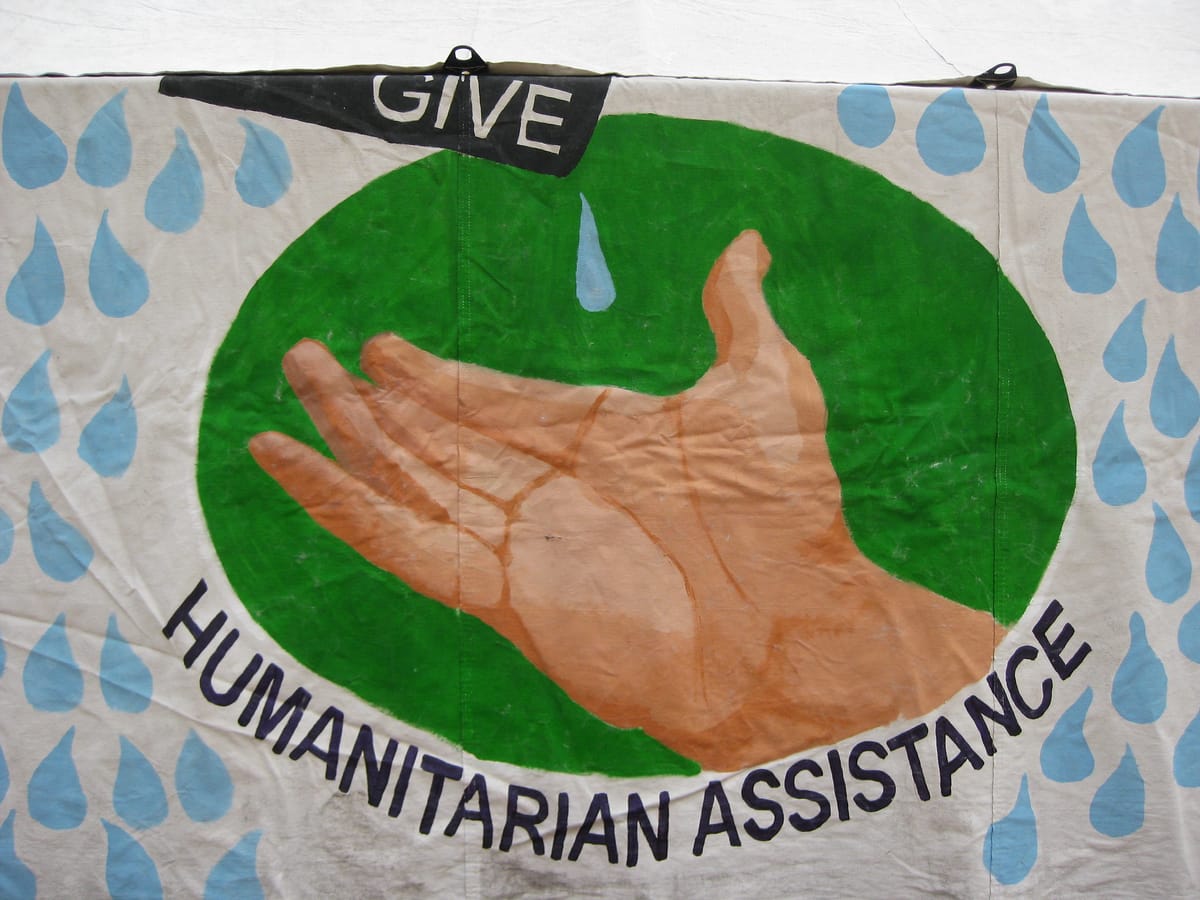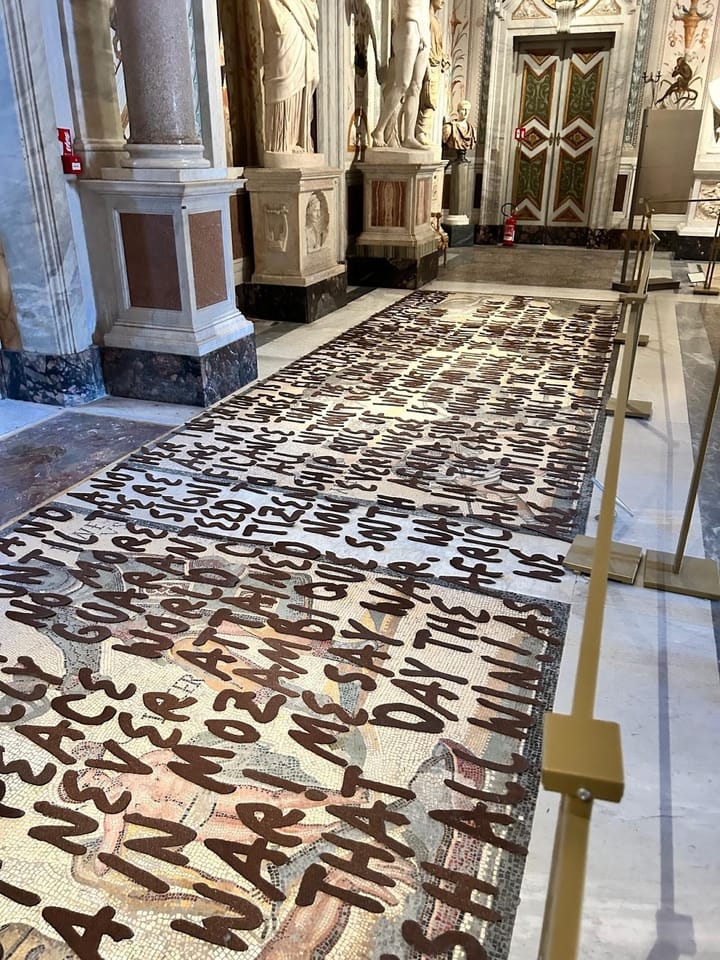Language shapes reality. That is the argument we hear every time a new term replaces an old one in development and humanitarian work. “Third World” became “developing countries,” then “Global South” or “majority world.” “Beneficiaries” turned into “participants” or “rights holders.” “The field” is now increasingly called “the response area” or “the project site.” These changes are often justified as necessary steps to decolonize aid, shift power, and respect the dignity of those affected by crises. But do they actually change anything?
The Illusion of Progress
Terminology shifts are often presented as progress—signs that we are moving toward a more just, equitable, and decolonized humanitarian system. But in reality, language change frequently serves as a distraction, creating the illusion of transformation while the underlying structures of power and oppression remain intact.
Take the term Global South. It was introduced to replace developing countries in an effort to acknowledge the historical and structural roots of global inequalities rather than framing them as a matter of economic underdevelopment. Scholars have argued that the term is meant to reflect not just geography but the ongoing legacy of colonialism and economic subjugation.[1] However, while the label may have changed, the material conditions of aid dependency, neocolonial funding structures, and the dominance of Western humanitarian institutions remain the same. The vast majority of humanitarian funding still flows from donor governments and institutions in the Global North, with decision-making concentrated in Western capitals and international NGOs.[2]
Similarly, the shift from beneficiary to rights holder was intended to emphasize agency and dignity. The idea was to acknowledge that those affected by crises are not passive recipients of aid but individuals with inherent rights and entitlements.[3] Yet, the power dynamic has not fundamentally shifted—crisis-affected people are still largely excluded from leadership in humanitarian responses, and local organizations continue to receive only a fraction of direct funding.[4]
The language of localization is now widely used in humanitarian spaces, but it remains largely rhetorical. The Grand Bargain, a set of commitments made at the 2016 UN World Humanitarian Summit to direct more funding and decision-making power to local actors, has seen minimal progress. According to research by the Overseas Development Institute, only a small percentage of humanitarian funding is directly channelled to local NGOs, despite repeated commitments to change this imbalance.[5] In this context, the shift in terminology does not reflect a shift in power—it merely creates the appearance of reform.
The Language of Respectability vs. the Reality of Disrespect
Some argue that even if terminology does not immediately change power structures, it is still important for shifting mindsets and narratives over time.[6] This might be true in some cases, but in humanitarian and development spaces, language is often performative—about respectability rather than respect.
Consider the shift away from calling crisis-affected areas the field. The argument is that the field evokes colonial imagery—Western aid workers venturing into dangerous, exotic lands to save the helpless. Yet does calling it a response area change how aid workers behave? Does it stop the devaluation of local expertise, the extraction of knowledge from local communities, or the reinforcement of harmful stereotypes? Or does it merely allow organisations to claim progress without making any substantive change? Research on the aid industry has shown that despite efforts to change terminology, paternalistic attitudes persist, and local humanitarian workers remain marginalized within the system.[7]
This pattern of cosmetic change is not unique to humanitarianism. Work on human rights law demonstrates that global institutions often adopt the language of social justice without implementing substantive reforms.
Symbolic Change Without Structural Shift
The problem is not just that terminology changes fail to disrupt power structures. It is that they often serve to mask the persistence of those structures. By adopting new language, institutions can appear progressive while continuing exploitative and exclusionary practices.
- If funding and decision-making remain concentrated in the West, does it matter whether we say Global South or majority world?
- If local women’s organizations still struggle to access direct funding, does it matter whether we call them local actors or women-led responders?
- If international staff still hold the most power, does it matter if they stop saying the field and start saying the response area?
Too often, these terminology shifts become substitutes for real change—a way for institutions to appear self-critical and forward-thinking without addressing the deeper injustices embedded in the humanitarian system. This can be understood as non-performative institutional actions—changes that signal commitment to equity while failing to challenge underlying power imbalances.[8]
When Words Do Matter
None of this means that language is irrelevant. Words have power, but only when they reflect and reinforce genuine shifts in practice. The problem is not that we are changing terminology, but that we are doing so without changing behaviour, policies, or funding flows.
If we stop saying Global South but continue to exclude non-Western actors from leadership, we are simply engaging in linguistic whitewashing. If we replace the field with response area but continue to exploit local staff and expertise, we are engaging in symbolic reform rather than meaningful transformation.
What Needs to Change?
Instead of focusing on cosmetic shifts in language, we should be asking the following questions:
- Who benefits from these terminology changes? Are they driven by affected communities, or by international institutions seeking to maintain legitimacy?
- What structural shifts accompany the change in language? Has funding, decision-making power, or representation changed in any meaningful way?
- How do we hold institutions accountable for performative progress? How do we ensure that words are matched with action?
If language change does not come with redistribution of power, resources and decision-making, then it is nothing more than a smokescreen. Until the humanitarian and development sectors find the courage to confront these uncomfortable truths, meaningful change will remain out of reach.
When the Mask Slips: Politics and the Fragility of Humanitarian Language
The fragility of humanitarian language is perhaps most clearly exposed when political winds shift. The Trump administration’s drastic budget cuts to international aid, and its rejection of diversity, equity, and inclusion (DEI) frameworks showed how quickly the veneer of humanitarianism can be stripped away. Concepts such as equality, human rights, and charity, once positioned as foundational to foreign assistance – or at least this is what we were told – became politically inconvenient and ultimately disposable overnight.[9]
In this context, DEI policies were recast as ideological threats. Gender programmes were slashed, aid to UN agencies was withdrawn, and the language of “America First” replaced any pretence of global solidarity, The use of humanitarianism as a tool for soft power took on a more openly coercive and transactional tone. These actions laid bare the unsettling truth; humanitarianism—as practiced by the Global North—can become just another extension of geopolitical interests.[10] Beneath the surface, the values of equality, diversity, inclusion, and human rights served as little more than rhetorical cover for ongoing colonial interests. When stripped of political utility, these ideals revealed their emptiness as tools of convenience rather than commitments to justice. In the shadow of coloniality, their meanings were never as fixed or universal as they appeared.
Thus, debates over whether we say “beneficiaries” or “rights holders” can seem painfully out of step with reality. When funding is stripped from programmes designed to support women’s health, LGBTQ+ rights, or climate-affected communities, the language changes promoted by aid institutions lose even their symbolic power. Without structural accountability and commitment to justice, humanitarian terminology becomes an empty shell—easily cast aside when inconvenient.
Beyond Words: Decolonization in Practice
Real decolonization in humanitarian work is not about replacing words—it is about replacing unjust systems. It is about shifting power, redistributing resources, and breaking down the hierarchies that have governed aid for decades.
A genuinely decolonized humanitarian sector would:
Shift financial control – Ensuring that local and national organizations receive direct, flexible funding rather than being treated as subcontractors. Decentre Western expertise – Recognizing and valuing local knowledge rather than assuming that technical expertise lies exclusively in the Global North. Redefine leadership – Moving beyond tokenistic participation to genuine decision-making power for crisis-affected communities.
Until these structural changes happen, terminology shifts will remain little more than rebranding exercises—cosmetic updates designed to make us feel better about a system that remains fundamentally unchanged.
[1]Dados, N. and Connell, R., (2012), The global south. Contexts, 11(1), pp.12-13.
[2]Roepstorff, K., (2020), Localizing Humanitarianism: The Power of Labels, the Uses of Expertise, and the Politics of Culture, Third World Quarterly, 41(2), 282–299.
[3]Cornwall, A., and Nyamu-Musembi, C., (2004), Putting the ‘Rights-Based Approach’ to Development into Perspective, Third World Quarterly, 25(8), 1415–1437.
[4]Barbelet, V., (2019), As Local as Possible, as International as Necessary: Understanding Capacity and Complementarity in Humanitarian Action, London: Overseas Development Institute (ODI).
[5]Els, C., Mansour-Ille, D., and Ali, D., (2022), The Grand Bargain at Five Years: An Independent Review, London: Overseas Development Institute.
[6]Merry, S. E., (2006), Human Rights and Gender Violence: Translating International Law into Local Justice, Illinois: University of Chicago Press.
[7]Slim, H., (2015), Humanitarian Ethics: A Guide to the Morality of Aid in War and Disaster, London: Oxford University Press.
[8]Ahmed, S., (2012), On Being Included: Racism and Diversity in Institutional Life, Durham: Duke University Press.
[9]Lowrey, A., (2018), Trump’s Budget Is a Slap in the Face to the World’s Poorest, The Atlantic. Saldinger, A., (2020), Trump’s Final Foreign Aid Budget Proposal: Deep Cuts, Again, Devex.
[10]Patrick, S., (2019), Trump and the Liberal International Order, Foreign Affairs.



